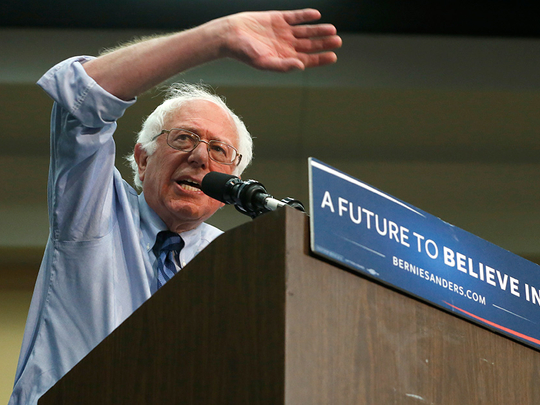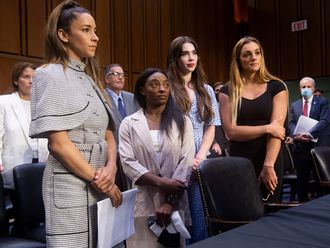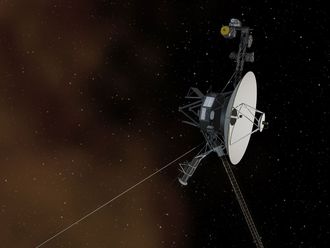
Washington: White House hopeful Bernie Sanders, who has fought the Democratic establishment throughout his campaign, made an extraordinary appeal Sunday for party insiders to help deliver the nomination to him, even if he doesn’t catch rival Hillary Clinton in the remaining primaries and caucuses.
Addressing reporters at the National Press Club in Washington, Sanders made a public plea for Democratic superdelegates to reconsider their allegiances to Clinton, particularly those in states where he has won nominating contests or those who committed to Clinton before he entered the race.
“They’re going to have to go into their hearts, and they are going to have to ask, do they want the second strongest candidate to run against [GOP front-runner Donald] Trump or do they want the strongest candidate?” Sanders said, suggesting that he is the strongest based on polling data.
Sanders’s pitch comes at a point in the race where even he has acknowledged a very narrow patch to winning the nomination and has talked publicly about a secondary goal of shaping the Democratic Party’s platform.
On Sunday, the senator from Vermont signalled that he has no intention of ending his fight before the July convention in Philadelphia. Discussing delegate math in a fashion more typical of a campaign consultant than a candidate, Sanders said he thinks it is highly unlikely that Clinton will have won the 2,383 delegates needed to claim the nomination based on primary and caucus results alone.
If that’s the case, the nominee will be determined by the party’s 719 superdelegates — the Democratic elected officials and other party insiders — who have a say on the nomination and are not bound by the results in their states.
Clinton “will need superdelegates to take over the top at the convention in Philadelphia,” Sanders said.
So far, superdelegates who have publicly declared their allegiances have sided with Clinton in overwhelming numbers — 520 to 39, according to the latest Associated Press tally that Sanders cited in his remarks Sunday.
Sanders, who was the longest-serving independent in Congress before announcing Democratic presidential bid, is now relying on many of those diehard Democrats to abandon Clinton at a time when she has a strong grip on the nomination.
Sanders said he hopes he can still catch Clinton in the number of pledged delegates in the 14 remaining primaries and caucuses, but he acknowledged that he has “a tough road to climb.”
To catch Clinton, Sanders said he would need to win 65 per cent of the delegates in the remaining contests, starting in Indiana on Tuesday.
“I do not deny it for a second,” he said. “Nothing I’m telling you today suggests this is going to be an easy fight.”
He said a prime target for flipping superdelegates will be those in states where he has soundly defeated Clinton. His campaign distributed a handout listing 11 of those, of which Sanders pointed to several in his remarks.
In Washington state, for example, he said he won the caucuses with nearly 73 per cent of the vote against Clinton, characterising the outcome as “a massive landslide.”
But Clinton has 10 announced superdelegates from the state and Sanders has none.
“I would ask the superdelegates from the state of Washington to respect the wishes of the people in their state,” he said.
Sanders said he thinks he is “entitled” to pick up many superdelegates from such states.
Even the tally sheet the Sanders campaign distributed Sunday underscored how improbable his path is.
Even if Sanders were to manage to flip every Clinton superdelegate in the 11 states on his tally sheet, and even if he were to win every uncommitted superdelegate in those states — both impossible scenarios — he would pick up only 77 superdelegates.
When counting both pledged delegates and superdelegates, Clinton’s lead over Sanders is 808 delegates.
When asked about that, Sanders said he also would be relying heavily on other superdelegates who determine that he would have a better chance of defeating Trump in the general election.












